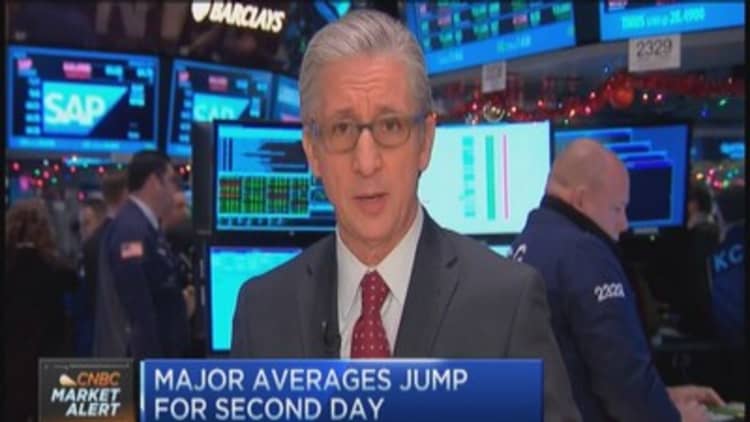
Following on JC Penney's strong holiday sales news, a group of retailers reported holiday sales for the November-through-December period were generally better than anticipated. More importantly, five companies raised guidance for the quarter (Most retailers have a November-through-January quarter.):
1) American Eagle: sales were down 2 percent, better than "mid-single digit" declines expected for the quarter, and they guided higher,
2) Aeropostale: sales fell 9 percent, not as bad as feared, and fourth quarter loss will be less than previously indicated,
3) Stage Stores: sales rose 6.5 percent,
4) Cato : sales were up 6 percent, better than the 4.5 percent gain expected,
5) Zumiez: sale jumped 8 percent.
Read More Long live the Web: Online sales top expectations
You've got to believe that lower gas and better employment numbers were factors in these better guidance numbers.
Even those that did not raise guidance reported sales better than expected:
1) Barnes and Noble: sales up 1.7 percent,
2) Pier One: revenues rose 8.2 percent,
3) Urban Outfitters: sales jumped 4 percent.
Read More Teen fashion retailers are going out of style
Signet Jewelers saw sales rise 3.6 percent and reaffirmed guidance, with management saying, "we resisted deep promotions."
Costco core comps were up 8 percent, versus estimates of up 6.6 percent. Lower gas sales brought down the ticket a bit.
I'm eager to hear from Macy's and Target, which did release holiday sales numbers this time last year.
Read More JC Penney soars, but it's too soon to declare victory: Analyst
Elsewhere, S&P futures surged 15 points shortly after 9 p.m. ET last night. The head of the Chicago Federal Reserve, Charles Evans, gave a speech saying it would be a "catastrophe" to raise rates. That is no surprise from Evans the uber-dove, but this year he is a voting member of the Federal Open Market Committee, which likely explains the outsized reaction.


